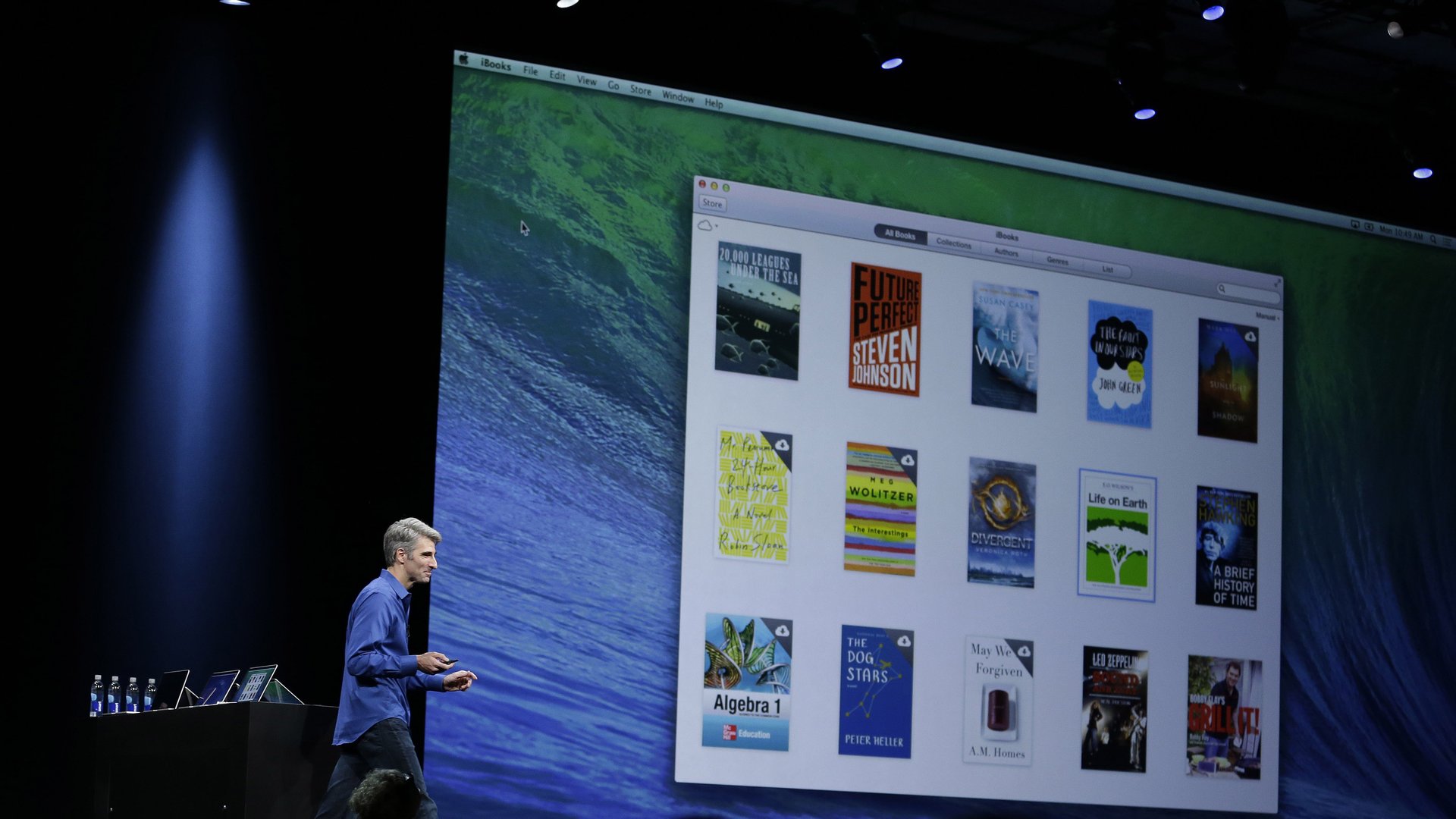Apple will pay customers $400 million for an ebook pricing conspiracy
If you bought an ebook between 2010 and 2012, Apple might owe you some money.


If you bought an ebook between 2010 and 2012, Apple might owe you some money.
In 2012, the US Department of Justice filed suits against Apple and five major US book publishers, accusing them of violating anti-trust law and conspiring to raise the price of ebooks. On Monday (Mar. 7) the Supreme Court refused to hear Apple’s appeal, which means the company now owes $400 million to past customers.
If you bought ebooks from HarperCollins, Hachette, Macmillan, Penguin, or Simon & Schuster between April 1, 2010 and May 21, 2012 using a US billing address, you’re likely eligible for part of the payment. A third-party site helping to facilitate pay-outs from the settlement estimates that if you bought ebooks that were New York Times bestsellers during those years, you’ll get between $6.05 and $6.54 in cash or credits per ebook, with other books worth between $1.39 and $1.50 each.
Before 2010, online marketplace Amazon had tried to limit the price of new ebooks to $9.99—even bestsellers, which are traditionally sold at higher prices. When Apple entered the marketplace that year with its iPad and iBookstore, it worked with major publishing houses to help give price-setting power to publishers, rather than retailers. Many publishers, naturally, were upset with Amazon’s low prices.
“Apple was caught red-handed orchestrating this scheme to inflate the prices of e-books,” said Steve W. Berman, one of the lawyers representing the class of book buyers, in a statement.
Apple argued in 2015 that a ruling against them would “sow uncertainty, discourage pro-competitive business ventures, and chill innovation,” and added that “disruption of established business models through innovation is critical to the American economy.” (Quartz has reached out to Apple and will update here with any comment.)
The judge who originally ruled against Apple cited emails from Steve Jobs to Apple’s now head of internet services Eddy Cue, including one in which (pdf) Jobs said he was only comfortable with iBookstore if Amazon would indeed feel pressure from the publishers and change its model.